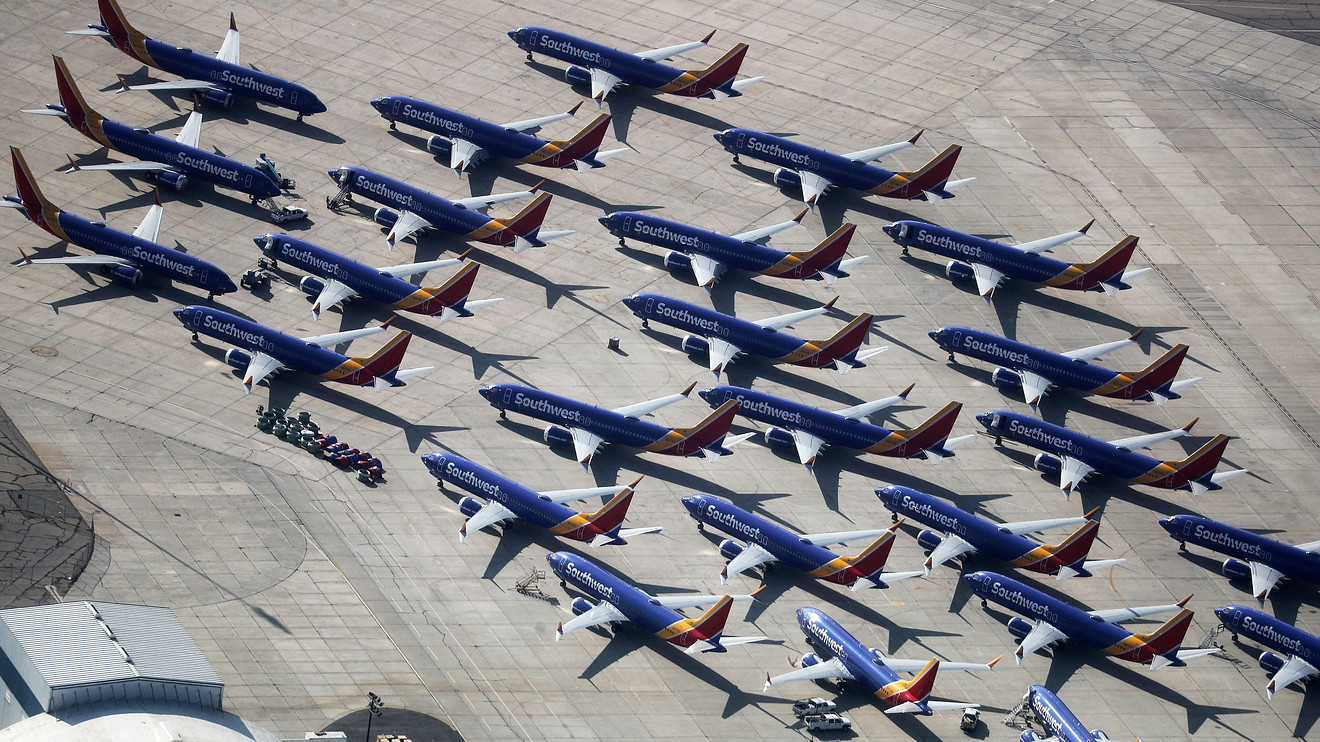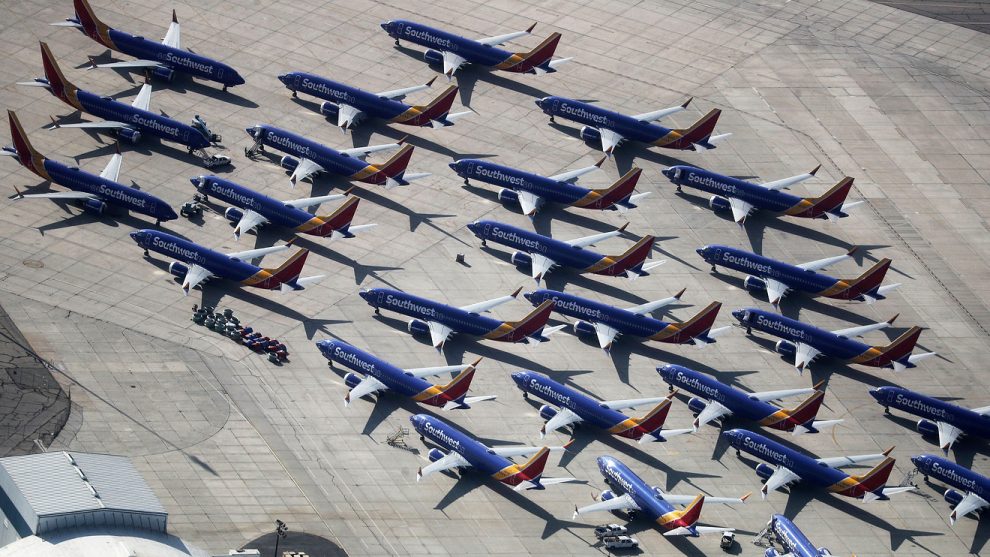
Boeing Co. is scheduled to report first-quarter earnings before the bell on April 24, with Wall Street focusing on the company’s 737 program and the ripple effects that two fatal crashes and the planes’ grounding continue to have on the company’s bottom line.
The 737 Max aircraft, the fourth and latest major iteration of Boeing’s storied 737 family, was grounded world-wide in March following two fatal crashes less than five months apart. The Max accounts for about a third of Boeing’s revenue over the next 5 years.
Related: Boeing’s reputation at risk following fatal crashes, but the company has overcome crises before
A preliminary report on the causes of a crash that killed 157 people in Ethiopia in March found similarities between that accident and the October crash in Indonesia that killed 189 people.
Boeing BA, +1.67% is working on a software fix involving one of the plane’s anti-stall features and Chief Executive Dennis Muilenburg has apologized for the loss of lives.
Boeing last week reported first-quarter delivery numbers that met lowered expectations. Earlier this month, the company said it would cut 737 production around mid-April to account for a continuing halt in Max deliveries.
That production cut is more complex than it appears, analysts at Bernstein said in a recent note. “Final assembly and supply chain are being kept hot enough to enable a quick return to (52 aircraft a month),” said the analysts, led by Douglas Harned.
“We expect few cancellations. There is not a realistic near-term Max substitute,” they said.
Here’s what to expect
Earnings: Analysts at FactSet expect Boeing to report adjusted earnings of $3.23 a share. That would compare with adjusted earnings of $3.64 a share in the first quarter of 2018.
Estimize, a crowdsourcing platform that gathers estimates from Wall Street analysts as well as buy-side analysts, fund managers, company executives, academics and others, is expecting an adjusted profit of $3.80 a share.
Revenue: The analysts surveyed by FactSet see revenue at $23.3 billion, which would be down from $23.4 billion in the year-ago quarter. The Estimize forecast is for $23.8 billion.
Stock: Boeing stock is up 17% so far this year, and 14% in the past 12 months, handily beating the S&P 500 index SPX, +0.05% which has gained 16% and 9% in those two time periods, and the Dow Jones Industrial Average DJIA, +0.26% up 13% and 8%. Boeing stock is a Dow component.
Other issues: Wall Street will be keeping a close eye on any changes to Boeing’s 2019 guidance.
The company in January guided for revenue between $109.5 billion and $111.5 billion for the year, reflecting “higher volume across all businesses,” and an adjusted EPS between $19.90 and $20.10.
That would compare with a banner 2018, in which Boeing recorded record revenue of $101.1 billion and a record adjusted EPS of $16.01 “driven by solid execution,” the company has said.
More broadly, investors will want to know whether the 737 Max problems will cast more doubt on the other jet programs and future U.S. Federal Aviation Administration certifications, including whether Boeing’s next plane, the double-aisle 777X, would go through heightened scrutiny.
There’s likely “a roughly 6-month delay on first delivery of the 777X, and a postponement of a formal launch of the (new midsize airplane, yet unnamed),” the Bernstein analysts said. But these planes “will not be huge value drivers,” they said.
Most analysts expect the 737 Max will remain grounded for at least another two to three months, likely longer. Any color Boeing will be able to provide on the software fix and its implementation pending a FAA review will be closely watched.
“We expect pressure on 737 orders to continue until the aircraft returns to service,” analysts at Morgan Stanley said in a note.







